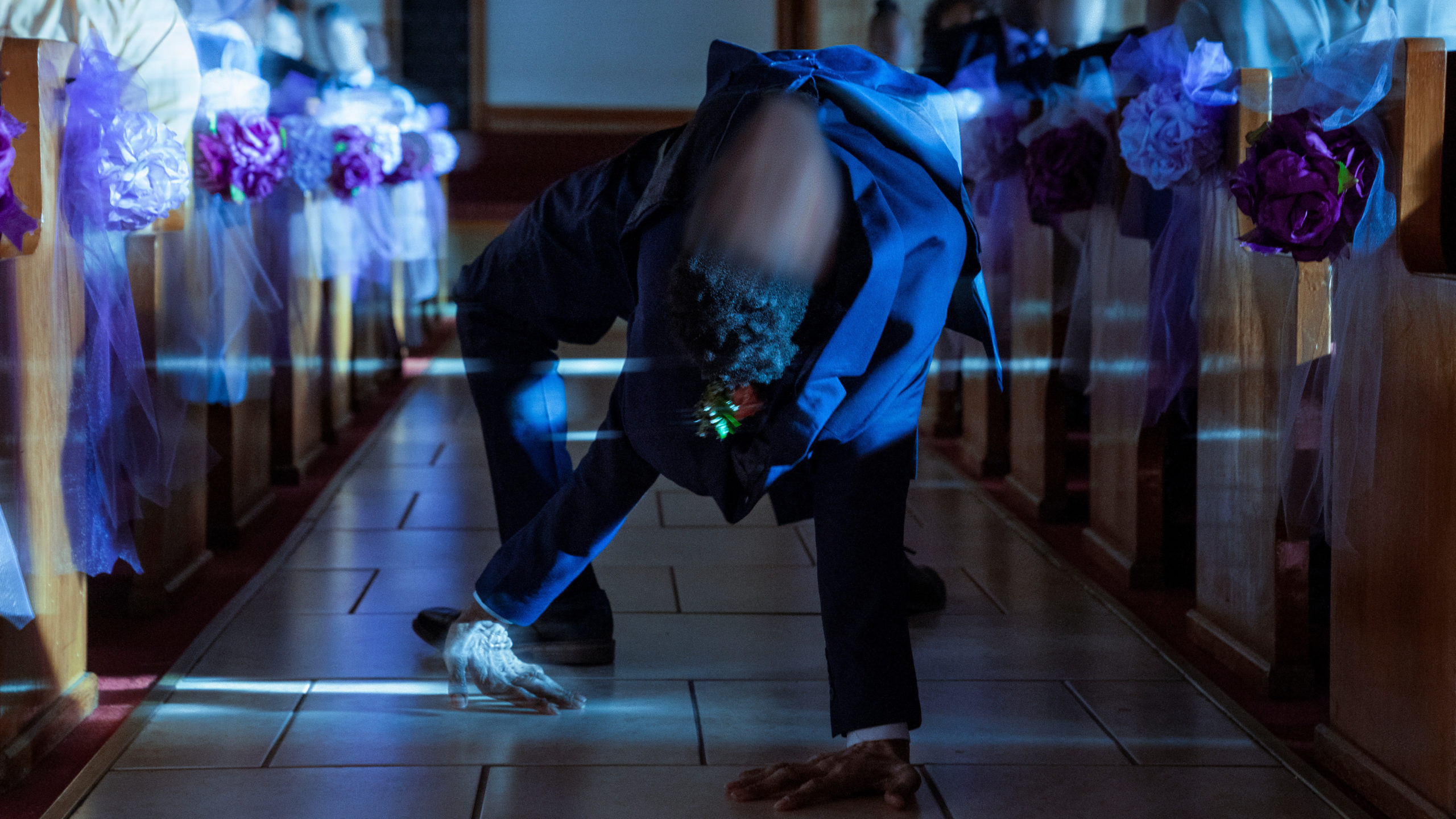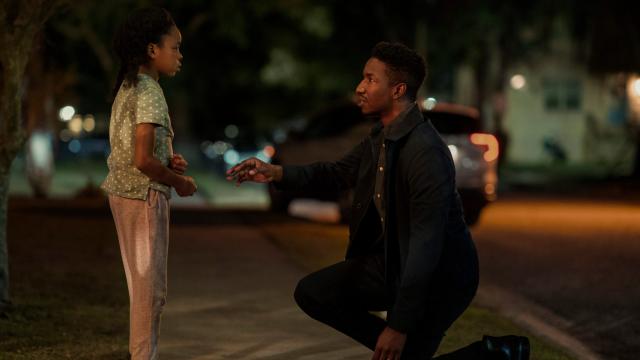Sci-fi movies are fond of exploring the intersection of technology and memory — think Total Recall, Eternal Sunshine of the Spotless Mind, and both Blade Runner movies, to name a few. With a limited budget and minimal special effects, Black Box puts a more intimate spin on the idea, with mixed but intriguing results.
Six months after a car accident killed his wife and left him with a serious head injury, Nolan (Mamoudou Athie, who’ll next be seen in Jurassic World: Dominion) is still struggling with memory loss. His slow recovery has sidelined his once successful photography career, but even worse, it’s caused conflict with his precocious daughter, Ava (Amanda Christine), who since the accident has become less like a kid and more like a pint-sized personal assistant.
Nolan’s best friend, Gary (Tosin Morohunfola), encourages him to meet with a fellow physician at the hospital where he works; it seems Dr. Lilian Brooks (Phylicia Rashad) has been making great strides in memory therapy thanks to an experimental treatment she’s dubbed “the black box.”
Dr. Brooks certainly has impressive credentials, as well as a motherly quality that’s immediately reassuring. But when Nolan surrenders his brain to the device, the memories that surface feel distinctly off — and that uneasy sense lingers after he’s left Dr. Brooks’ office. Certain things don’t add up, like a memory of a wedding that doesn’t match the photographs he has with his late wife, and some vague yet menacing impressions of a dark apartment where Nolan is certain his family never lived. Even worse, there’s a not-quite-human presence in the memories who’s played by contortionist Troy James — yes, the same bendy fellow who played Pretzel Jack on Channel Zero — but Nolan can’t quite put his finger on what it all means.
Eventually, Dr. Brooks’ “digital voodoo nonsense” (as one sceptical character describes it) reveals its true purpose. While the twist is a pretty obvious one, the uncomfortable truths it dislodges are surprisingly effective, and Black Box manages to stay pretty grounded — despite all the tech, the choices Nolan must make are very human ones — even as it veers into Twilight Zone territory.

Black Box, one of four “Welcome to the Blumhouse” premieres hitting Amazon Prime Video this month, comes from first-time feature director Emmanuel Osei-Kuffour, Jr., who also co-wrote the script with Stephen Herman. The performances are unfortunately a bit uneven, which can make difficult to engage emotionally with the story at times. Aside from James, who is truly one of a kind, the strongest showing (unsurprisingly) comes from Rashad — an actor so legendary the casting is almost an automatic spoiler, since you already know her character going to play a much bigger part in things than the script would initially like us to believe.
Black Box, produced by Blumhouse Television as part of the “Welcome to the Blumhouse” series, is now streaming on Amazon alongside The Lie — Veena Sud’s psychological drama about a divorced couple (Mireille Enos, Peter Sarsgaard) pushed to the brink when their teenaged daughter (Joey King) does something unimaginably awful; we’re not reviewing it here since it’s not really a genre movie.
The other two “Welcome to the Blumhouse” selections, Evil Eye and Nocturne, will arrive on October 13; stay tuned for our reviews of those.
[referenced id=”1129965″ url=”https://gizmodo.com.au/2018/09/12-unforgettable-sci-fi-movies-about-memory/” thumb=”https://gizmodo.com.au/wp-content/uploads/2018/09/25/ml7i4fxvfg6zsat424f9-300×166.jpg” title=”12 Unforgettable Sci-Fi Movies About Memory” excerpt=”Filmmakers love to explore memory problems — in the form of amnesia, dementia, manipulation, conflicting recollections of the past, you name it. And this thematic fascination isn’t limited to any one movie genre; it’s the one thing Overboard, Memento and Rashomon all have in common.”]
